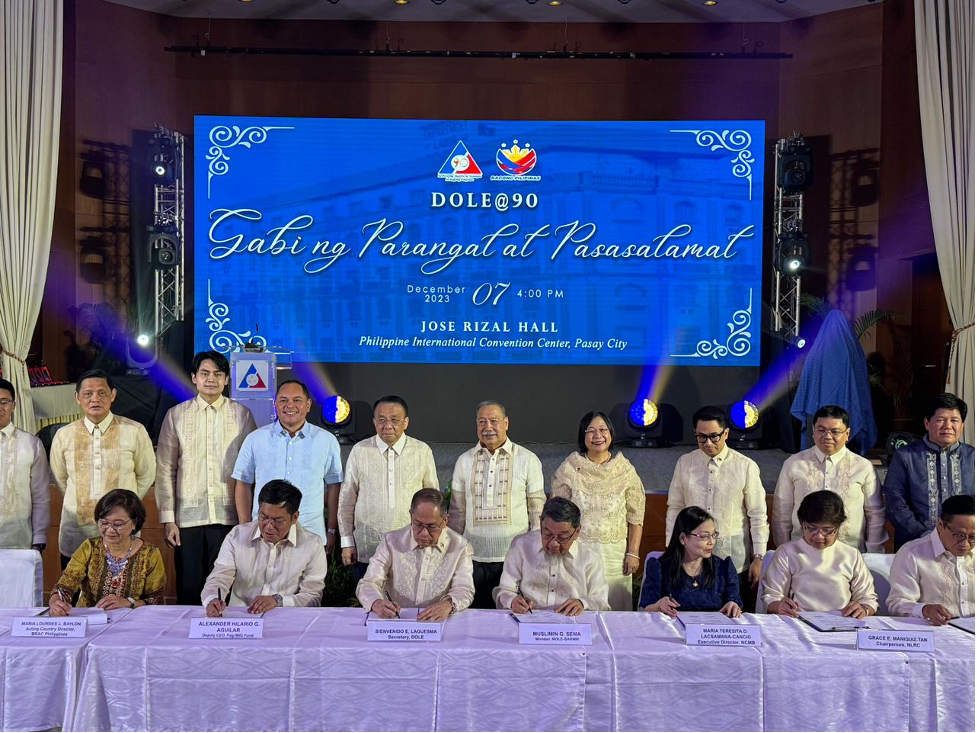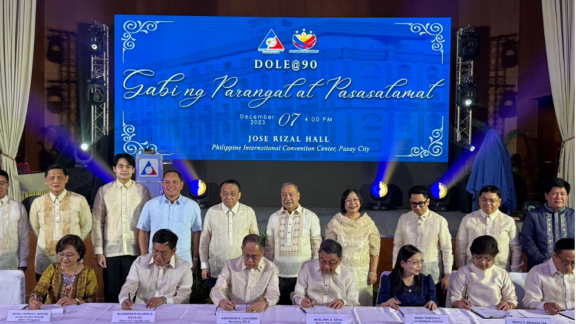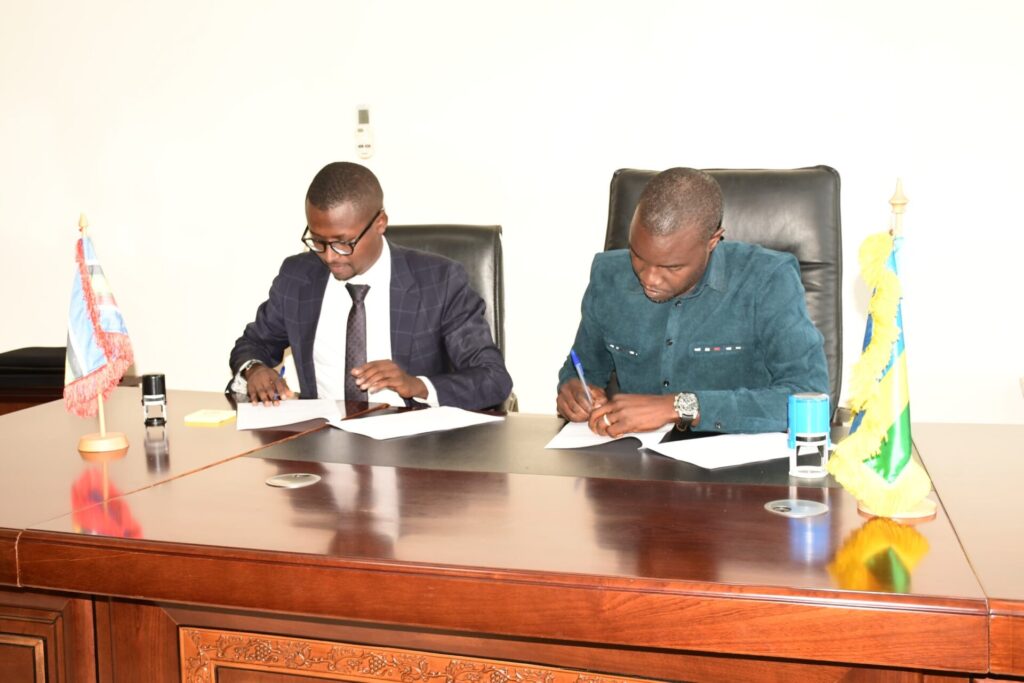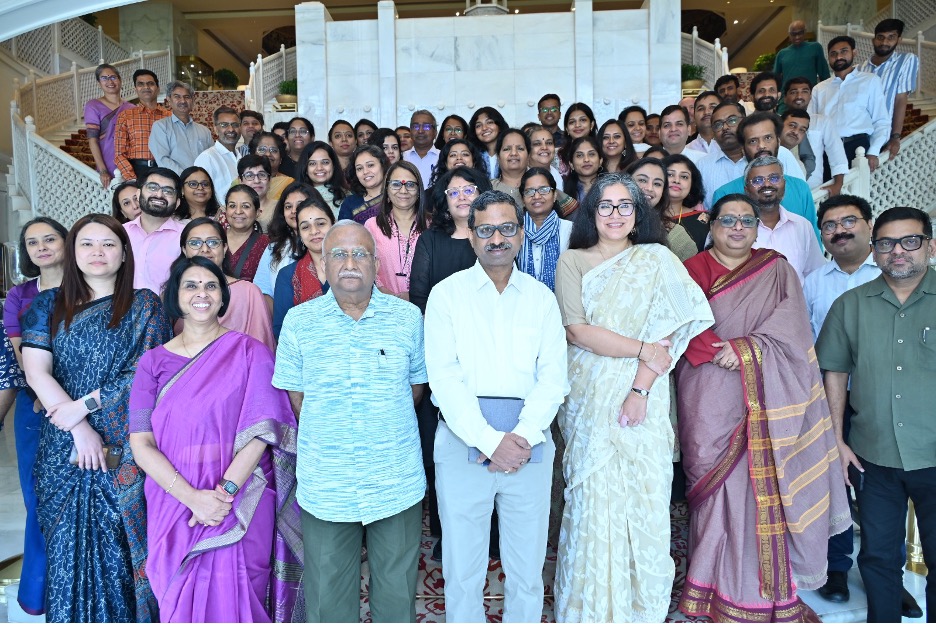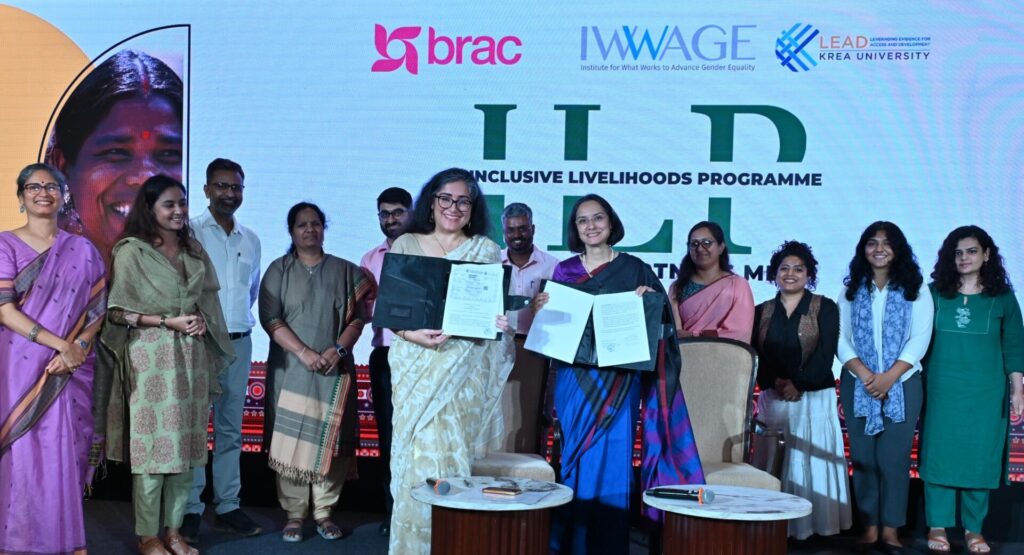By Maria Baylon, Acting Country Director of BRAC International Philippines and Country Lead for the Ultra-Poor Graduation Initiative
Caption for image above: The Philippine Department of Labor and Employment Secretary Bienvenido Laguesma signed multiple MoUs with partners during the 90th Founding Anniversary of the Department of Labor and Employment. (PC BRAC International)
During the Philippine Department of Labor and Employment’s (DOLE) 90th Founding Anniversary, “DOLE@90 Stakeholders’ Night,” Secretary Bienvenido Laguesma signed multiple MoUs to strengthen convergence and coordination between DOLE and partners to take a more comprehensive approach to combating poverty, including an MoU with BRAC International to support DOLE’s Integrated Livelihood Program.
“We must now use our institutional experience and wisdom of the first 90 years in embracing the challenges and opportunities that transformation brings to help bring about a better future for all working Filipinos and their families,” said Secretary Bienvenido Laguesma of DOLE. “As we move forward, we reaffirm our commitment to elevate public service to the highest standards of speed, accountability, efficiency and honesty…It is the kind of service that our constituents require so that we can all progressively realize the ultimate goals of decent work, inclusive growth, shared prosperity, and social justice that the entire nation deserves as envisioned by the present Marcos administration.”
Through collaborative efforts, partners will put together different elements of the Graduation approach, an evidence-backed, multifaceted approach that addresses the many social and economic challenges people in extreme poverty face by providing a “big push” that sets them on an upward trajectory. Rigorous research about Graduation demonstrates that when such elements are provided together within a short timeframe, they give people in extreme poverty the big push needed to create an upward trajectory out of poverty – that up to 10 years after a program, participants experience a continued increase in consumption, income, savings, confidence, and overall well-being.
The MoU signed with BRAC International is based on a successful Graduation pilot that DOLE, the Asian Development Bank (ADB) and BRAC International collaborated on from 2018-2020, reaching 2,400 households in 29 barangays across five municipalities in Negros Occidental. The pilot provided participating households with a sequenced set of interventions that built on existing government programs, including the DOLE Kabuhayan (Livelihoods) Starter kit, combined with a one-time asset transfer and training in business management, and social assistance provided through the DSWD Pantawid Pamilyang Pilipino national cash transfer program. The pilot also included technical training on how to manage the asset participants were given along with savings mechanisms, ongoing coaching by Graduation Community Facilitators, skills building on social and health issues, and linkages to community groups and cooperatives.
“The initial results give us the confidence to say that the [Graduation] pilot has succeeded to lay a strong foundation for resilient and sustainable livelihoods,” said Alex Avila, former Assistant Secretary of DOLE, during ADB’s 2021 event on social protection for economic inclusion, which centered the Graduation approach as a key strategy for addressing poverty and reducing inequalities in Asia and the Pacific.
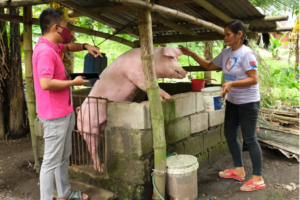
Corazon Gaylon, a participant of the DOLE pilot, reflected on how much her life changed in just two years after “graduating” from the program. She said, “My eldest daughter has been able to finish her college program, my second child is now starting his first year, and my youngest child is fully enrolled in school. I am no longer in debt. Our training sessions helped me a lot during the [COVID-19] lockdowns; I was able to prepare for it and put money aside.”
According to an initial end-line impact assessment by ADB, participants in the DOLE pilot demonstrated more resilient livelihoods and better savings and financial management despite the many challenges created by COVID-19 and ensuing lockdowns. 73 percent of group livelihoods and 60 percent of individual livelihoods remained fully operational by the end of the program. Likewise, despite some initial dips in savings and new loans taken, by September 2020, 69 percent of those who reported incurring a debt also reported being able to repay all or part of the loan, indicating improved savings management and a decrease in instances of risky financial behavior.
“We laud DOLE’s leadership in driving this coordinated effort to further advance poverty reduction in the Philippines,” said Marlowe Popes, Senior Field Manager, BRAC UPGI Philippines. “We look forward to working with them and other partners on a more comprehensive approach to tackling extreme poverty and sustainable livelihood development.”
Through the MoU with DOLE, BRAC International will also support capacity building and South-South knowledge sharing through learning visits and increased public engagement. By facilitating government exchange on the Graduation approach, such as the Philippine Government, BRAC International aims to strengthen coordinated, comprehensive poverty alleviation efforts that are adapted to the local context, enabling governments to achieve greater and more sustainable impact. BRAC International is proud to serve as a partner for governments and advance efforts to achieve Sustainable Development Goal 1 – eliminate all forms of poverty.
Many of the resources needed to eradicate extreme poverty exist. However, a high degree of coordination with government across all levels and other sectors is required to improve their overall impact and achieve more sustainable results. With governments at the helm facilitating such coordination, and support from the broader development community, the goal to eradicate extreme poverty can be achieved.

